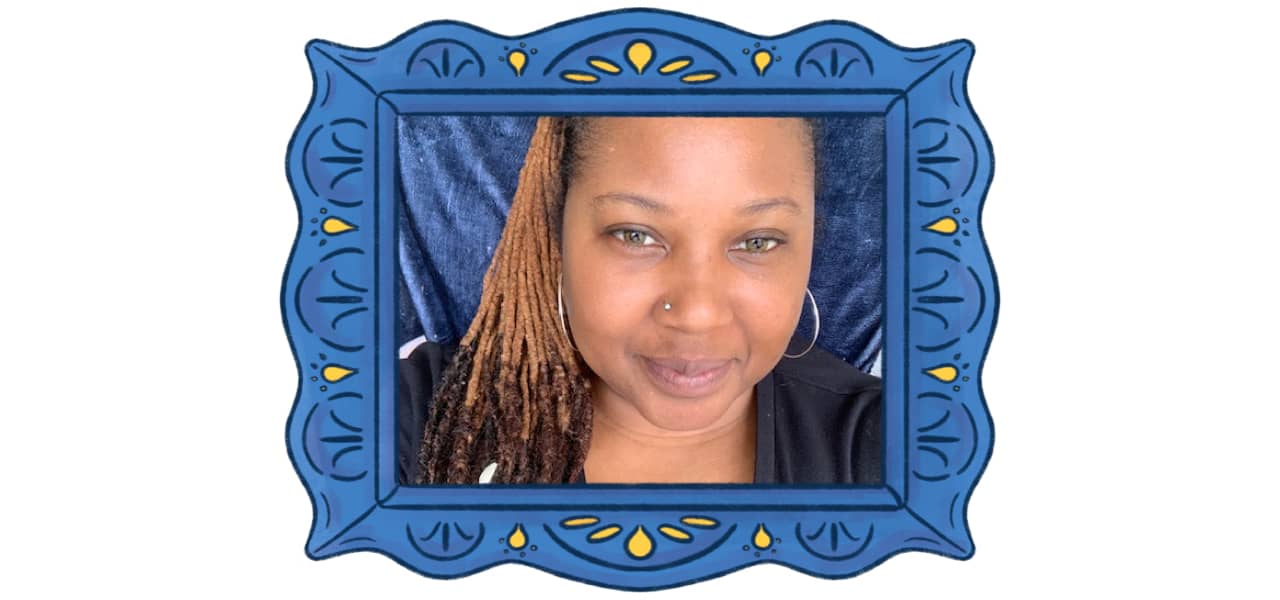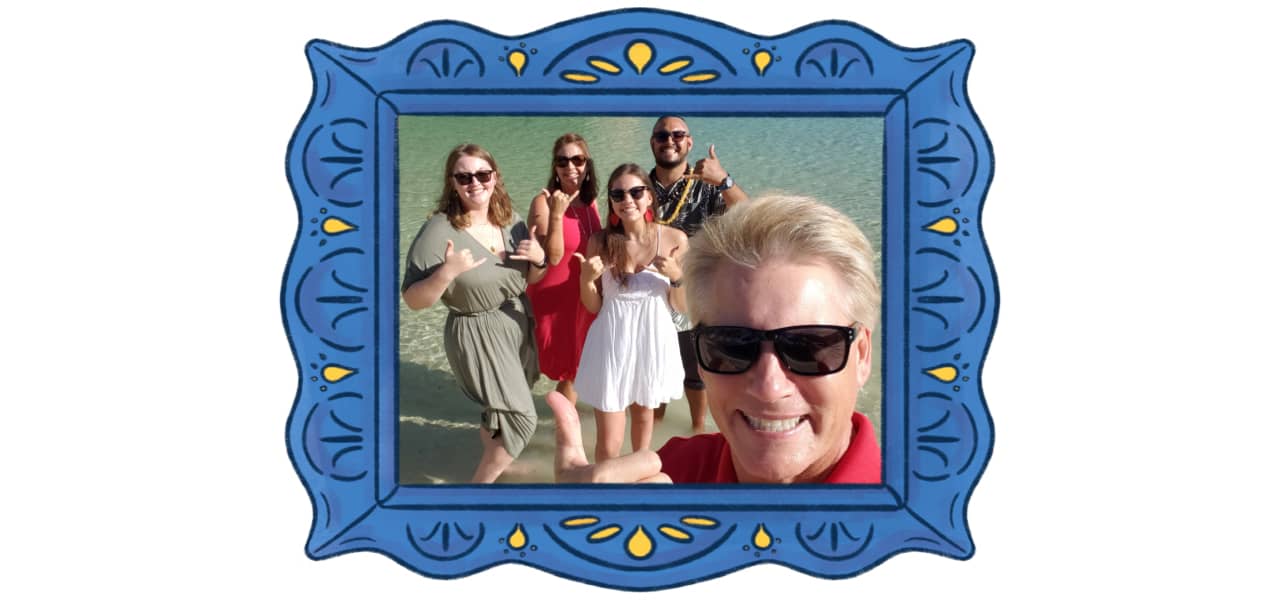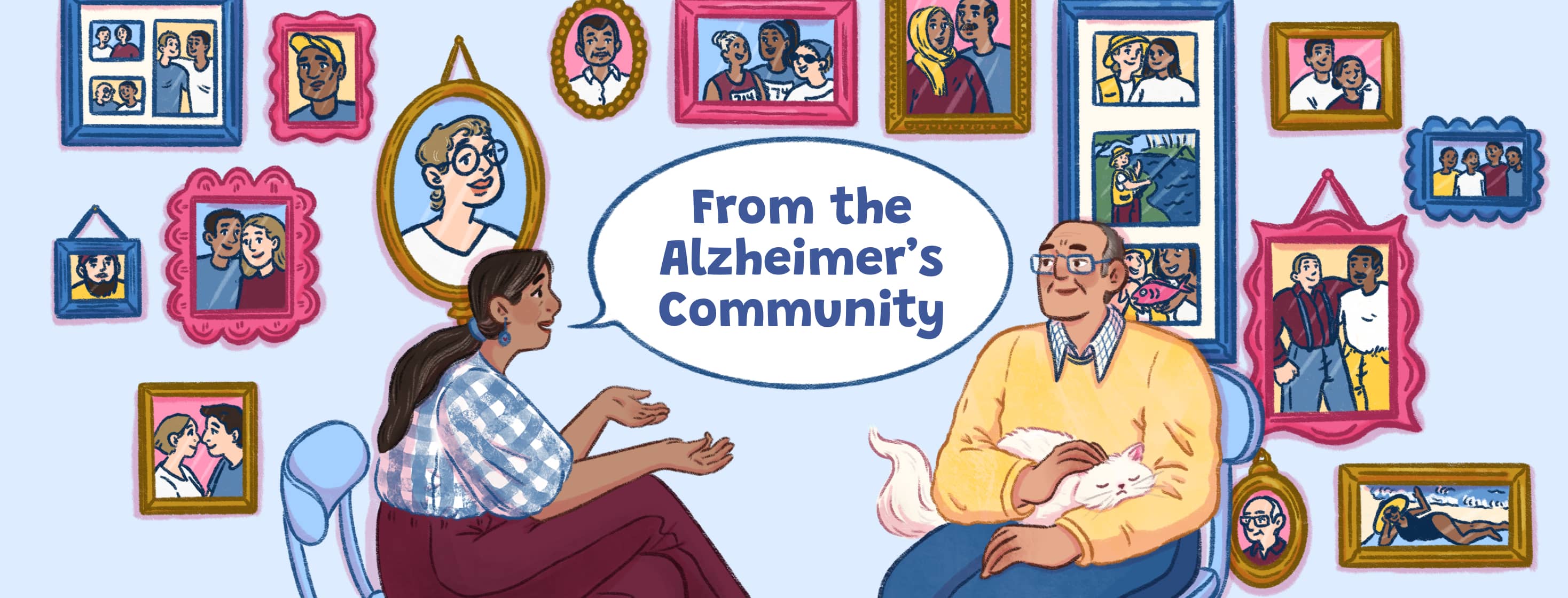Faces of Alzheimer's Community Members: Chatting With Nia and Steven
We often ask those living with Alzheimer's or dementia, "What do you want other people who have been diagnosed to know?" We regularly hear a common – if not surprising – perspective: "There is life after your diagnosis."
At AlzheimersDisease.net, we want to acknowledge and highlight this sentiment and showcase that those living with a diagnosis can still be engaged, lead active lives, and experience love and joy.
Let us share with you the perspective of 2 of our community members.

Meet Anitra (Nia) Mostacero
Nia was diagnosed with early-onset Alzheimer's disease at 42 years old. In this interview, she shares about life after her diagnosis and what she wishes others knew.

Meet Steven Barbieri
Steven was diagnosed with early-onset dementia when he was 51 years old. In this interview, he shares with us how he is living life to the fullest and making every moment count!
How do you keep communication open with others in your life about your disease?
Nia: I keep communication open about my disease by making sure that I advocate as much as possible. I also let my son and my best friend know when I'm having symptoms as best as I can, so I can get the help I need, such as a driver or someone to help me run errands, etc.
Steven: We try to have dinner together every night and use this time to go over our day and what is coming up. We usually sit at the table another 30 to 45 minutes after eating – this is quality time.
Dinner has always been an important time for our family to connect. We used to do this with the whole family and I would ask each of our children, "Tell us the best part of your day." Now that it is just Tracy and me, it's still important that we have this time together.
How has your life changed since being diagnosed with Alzheimer's?
Nia: My life has changed greatly since being diagnosed with dementia. I now use many accommodations that I haven't used before and advocate.
Steven: It was life-changing to get a diagnosis at the age of 51. I was working at Wells Fargo Bank as a Vice President and District Manager for one of the largest areas in California, and we still had 2 of our 3 children at home.
The original plan was to retire at 55, but I suddenly had to retire and go on permanent disability. Good thing I had retirement funds and a long-term disability policy at work; this helped us out financially.
Do you feel well supported by your doctors and family?
Nia: I have an amazing staff of doctors that support me and make sure that I am taking the right meds for the correct diagnosis. I love them!
Steven: This is a hard question to answer without hurting some people's feelings. By my neurologist, not entirely. I was happy to have gotten many tests done like PET Scans and amyloid PET scans and having them done several years apart to see how the disease has progressed. The doctor even helped me get into a clinical trial at UC San Francisco called "The Basket Trial."
As for my family, my wife, 3 children, and in-laws have been amazing. I can't say much about my side of the family except for my younger sister, Dina, who checks on me weekly.
What do you want other people diagnosed with Alzheimer's to know?
Nia: I want people diagnosed with dementia to know that instead of concentrating on what you can't do, focus on what you can do, and your life will be fulfilled.
Steven: First and foremost, there is life after a diagnosis. It does not signal the end of life but a change of life — a new normal.
Don't stop doing what you love; adjust how you do it. It's about having a quality of life now more than anything. You may have to cut some people out that aren't supportive.
Don't put things off. I didn't put my life on hold. Instead, I hit the fast-forward button. I want to die with memories, not dreams.
Practically speaking, it's probably a good idea to have a will or living trust completed now so you can have your voice heard in the future. Remember, we still add value, and by advocating and educating, you have a chance for your voice to be heard.
What kind of support do you seek from other people and organizations?
Nia: I enjoy support groups from the Alzheimer's Association and the National Council of Dementia Minds. I also used accommodations when I was in college.
What should caregivers know?
Steven: Nothing about me, without me. I want to be a part of the conversation and make decisions about myself and what is happening in the house. Understand that maybe I'm not giving you a hard time, but I'm having a hard time. Try to be a spouse for as long as possible.
Is there anything that you would like to add?
Steven: As a person with dementia, it's important to educate yourself and share with your care partner about what is happening with you.
I believe in the importance of exercise. But remember, do your age. We can't run or play basketball like we are 20 anymore! But whatever it is, do it because you enjoy it and have fun doing it. And share your story whenever possible.
I now advocate and educate people about living well with dementia. Having a voice to share my story has been very rewarding.
Learn more about Nia and her experience with early-onset Alzheimer's disease.
Learn more about Steven and his dementia journey.

Join the conversation